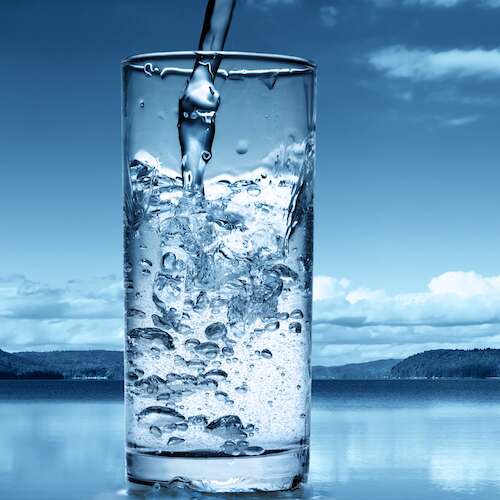Hydration is Key
Posted on February 14 2022
This eye-opening and informative article on the importance of keeping hydrated is written by Paula Sharp, Nutritional Therapist who lives and practices in Whakatane, New Zealand. Paula works closely with her clients to teach them how to eat for their own specific health requirements and helps them to create a balanced mindset using meditation and visualisation techniques. Paula is generously offering ten free Nutrition 'Warrant of Fitness' Calls to our subscribers, find out more at the bottom of this article.
Water is the key to the body’s fluid levels and therefore it's smooth running; it is a basic need; it is a human right. So, why are many of us chronically dehydrated?
Hydration is Key
I have a question for you, “what is your relationship with water?”
a. I opt for any other beverage except water
b. I drink water when I’m thirsty
c. I drink water through the day
Hold on to your answers until the end of this article.
The human body is made up of approximately 70% fluid; blood, lymph, gastric juices, mucus, salvia, ear wax, urine, menstrual blood, breast milk, sweat and tears. There is more, but I’ve set the scene. All of this ebbs and flows and is syphoned to different parts of the body depending on how hydrated we are. Water is the key to the body’s fluid levels and therefore its smooth running; it is a basic need; it is a human right. So, why are many of us chronically dehydrated?
Because we simply do not drink enough water.
We drink too many diuretics (coffee, tea, fizzy drinks & alcohol).
Our bodies may have lost the ability to hydrate (after years of dehydration).
Stress is a chronic form of dehydration.
The brain registers thirst only when it is about to be impacted. It is the last organ in the body to show up as dehydrated which means EVERY OTHER organ is already under stress from dehydration and is operating on minimal liquid. Physical side effects of dehydration can be headaches & migraines, constipation, muscle aches, dry skin & hair, brittle nails and lower back pain. Research has linked dehydration to other health issues which include urinary tract infections, high blood pressure, high blood cholesterol levels, some allergies, forms of depression and anxiety & stress.
But how do you know you’re thirsty? Crazy question, right? The body registers thirst as hunger first. This harks back to our days as early hunters & gathers when we were not necessarily close to a water source, but could gain fluid through what we ate; for example, animal blood, foraged fruits & berries & leafy greens. Today, by the time we feel ‘thirst’ our brain is considerably dehydrated, we may have lost focus and can be feeling headachy or impatient.
As a Nutritional Therapist, I see many clients (including children) who are showing symptoms of dehydration. As a general rule, an adult should consume 1.5 to 2 litres of clean water a day depending on exercise and sweat. (But no more than a pint an hour, we don’t want to overload the kidneys). While a child (5 to 11 years) needs to drink between 300 – 900ml a day (depending on their age, size and physical activity). This is clear water, not juices, squash, milk or soda drinks, just water.
Stress has become a part of our modern daily life. We combat this in a variety of ways; exercise & sports, mindfulness techniques, read, garden, listen to music, alcohol, eat food with limited nutritional value, catastrophise to ourselves (or to others) or we simply bottle up our thoughts, feelings of overwhelm and anxiety. Seldom, do I see a stressed person reach for a glass of water. However, I want to propose the following –
Stress leads to physical dehydration and dehydration leads to physical stress.
Dealing with stress and experiencing dehydration leads to the same physical response pattern in the body of fight, flight or freeze. All mobilise and release hormones (endorphins, cortisone release factor, prolactin and vasopressin) to deal with the situation (whether, socially called for or not). Road rage is a common example of this. Dealing with conflict or coping with small children are others. Diffusing and managing these situations is simply done better if you have medicated with a glass of water first. Try it hot, cold, tepid, flavoured with cucumber or lemon, on ice or even as a herbal tea. Introduce it back into your day by having a bottle with you.
Let’s revisit this question; “what is your relationship to water?”
a. My body’s basic human right in order to function
b. My way of dealing with stress and creating balance
c. A free source enabling my well being
d. All of the above
Paula is passionate about helping people take ownership of their health so that they can thrive and live life to its fullest.
Now that the kids have gone back to school are you ready to get back into a healthy eating routine?
Feeling energised after the summer holidays to get back on track with your wellbeing?
Paula is offering ten free Nutrition 'Warrant of Fitness' Calls to our subscribers.
Email Paula for your call - paulasharp31@icloud.com


